Why some couples can't admit how they met
- Published
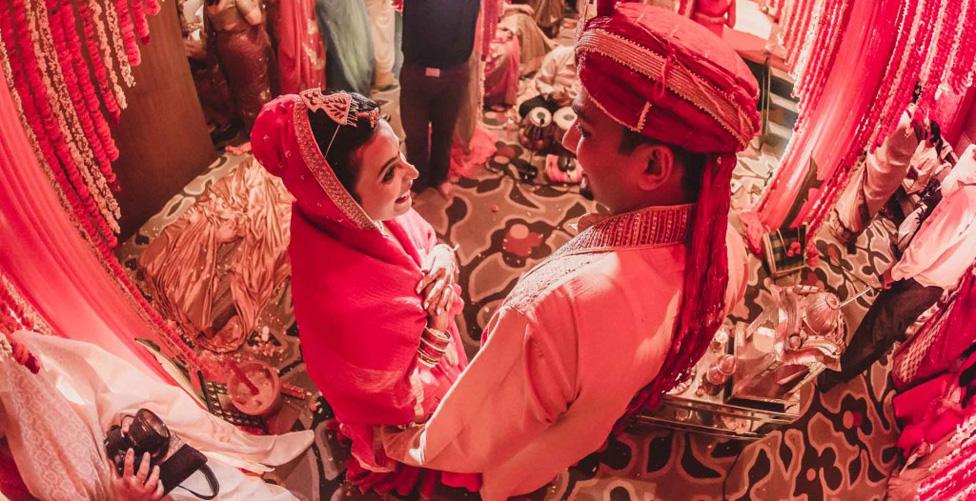
Young people in India have traditionally had their marriages arranged by their families but now, armed with smartphones and dating apps, some are taking control of their own love lives. Simon Maybin spoke to three couples who met online.
Two pairs of eyes meet surreptitiously, then flit away from each other, their owners hoping no-one has noticed. No Bollywood love song plays - in this real-life romance, the only soundtrack is the unmistakable clackety-clack of a train beetling across eastern India.
The eyes belong to 22-year-old Varsha and Rahul who is 27.
"I was returning from one of my aunt's homes," says Varsha with an irrepressible smile. "His granny was there so we started talking about our families and I don't know what happened but I got interested in him."
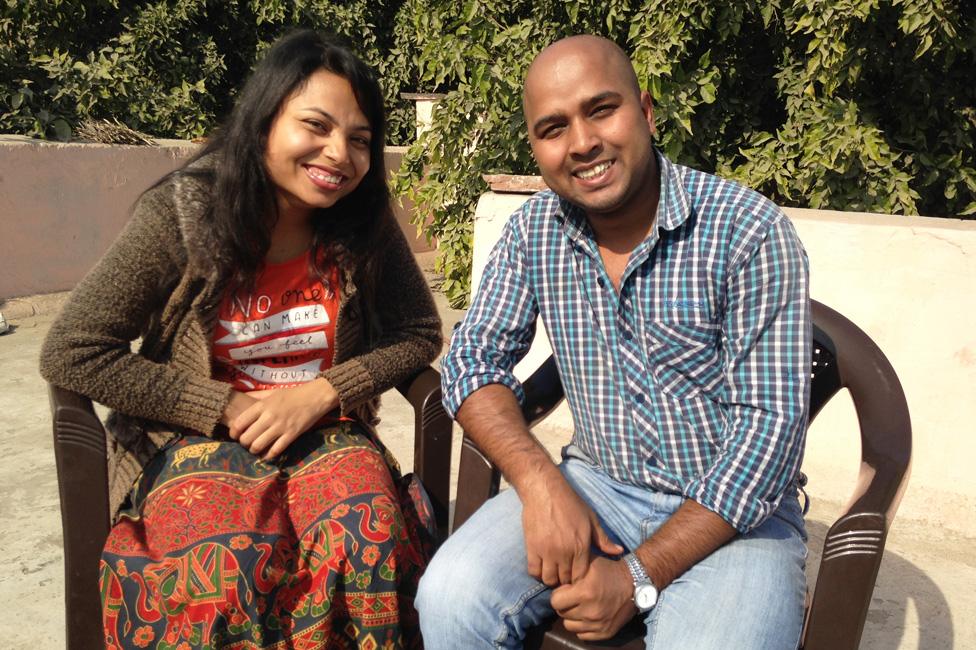
She spoke to Rahul's grandmother, but not to him. And he didn't speak to her.
"I didn't dare talk to her," says Rahul. "Her mother was there and her brother was also there."
In India, many would consider it inappropriate for strangers of the opposite sex to talk to each other. But these days, there's more than one way to start a conversation.
"I thought that he was a good man and wanted to be friends with him, so I started searching for him on Facebook," says Varsha. She didn't even know Rahul's name, but she knew where he worked and his sister's name, and that was enough to track him down.
They started chatting and swapping photos. Messaging rather than speaking made it easier to keep their budding relationship secret.
"We couldn't talk in front of everyone," says Varsha. Without her own bedroom, she was afraid even the glow of her smartphone would alert her family to what was going on.
"She used to hide under the blanket," says Rahul.
After a month or so chatting online, they started meeting in secret. It wasn't just that they were dating - still seen as taboo by many Indians - but Varsha and Rahul are from different castes, the inherited social classes that continue to play a big role in Indian life, despite discrimination based on caste being outlawed. The idea of being romantically involved with someone from another caste is completely unthinkable for most people in India.
A few months before that auspicious train journey and 1,000 miles south-east, in Bangalore, another love story had begun. This time, the soundtrack was the clatter of bowling pins.
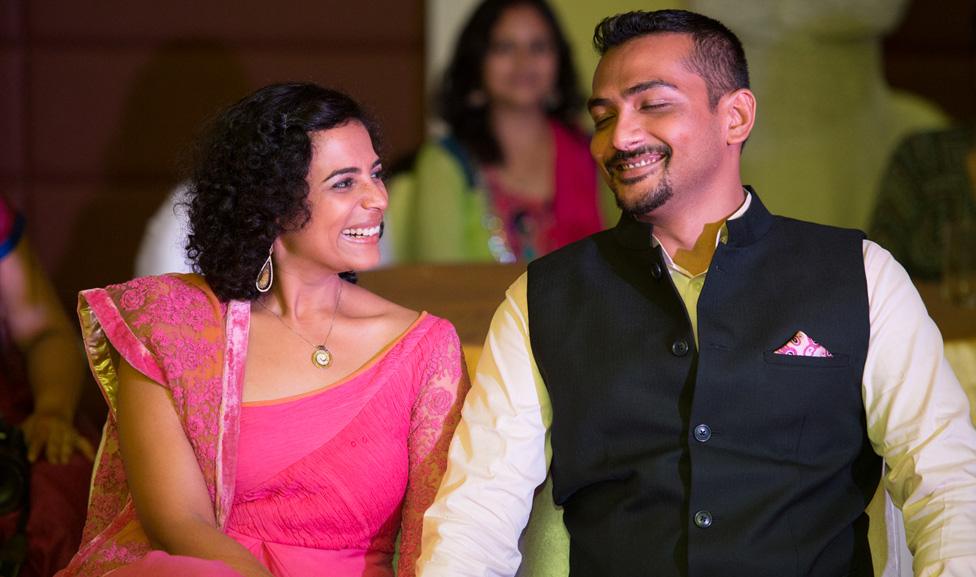
"The moment Kumar was out on the floor, everybody just stopped to watch," says Garima. "You were the Big Lebowski," she jokes, with a glint of pride in her eye.
They were at a bowling night organised by Floh, an online dating service that arranges events for singles who don't want an arranged marriage. Impressed, Garima messaged Kumar the next day and asked him out for juice.
They got on well and several more dates followed that week. Garima decided to mention Kumar to her mother, including the fact that he belongs to another religion - he's a Hindu and Garima's family are Jain.
The next time she visited her parents, it quickly became clear her new relationship was a hot topic. "My father was furious!" she says.
He had enlisted her uncle's help to do some online detective work and found out all about Kumar.
"He said, 'You don't even understand. He's a non-vegetarian and he drinks. You will not be able to live with this person.'"
Vegetarianism is a big part of the Jain belief system and Garima's family is teetotal. No-one in her family had ever married outside their sub-sect of Jainism.
A thousand miles and more north, in Delhi, another modern romance was getting under way. The sounds of barking dogs and children playing spilled into the modest ground-floor flat Nitin, who's 30, shared with his parents. Killing time on Facebook, an advert caught his eye. It was for TrulyMadly, India's top home-grown dating app.
"My parents were already looking for a match, so I thought, 'Why not give it a try?'" he says.
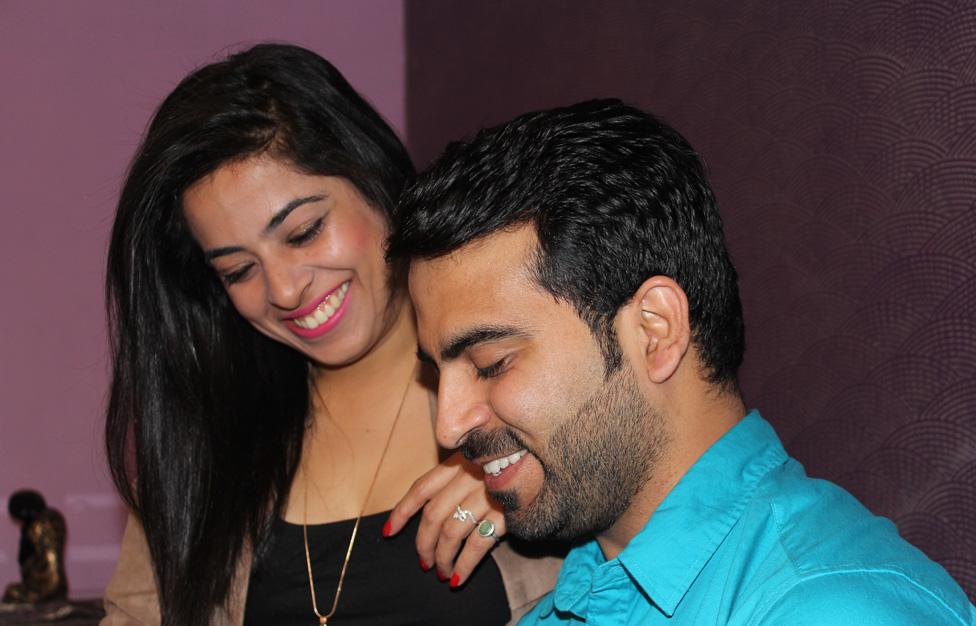
Across the city, Shruti, a year younger than Nitin, saw the same advert. Similarly weary of her parents' attempts to find her a partner, she too liked the idea of taking control of her own romantic destiny.
"I think within a week-and-a-half I started speaking to Nitin," Shruti says. "So we exchanged a few messages on that dating app and decided that we wanted to meet. After our first meeting it was very clear to me that he was the one that I was looking for, and I'm going to go ahead and finalise this guy for sure."
So a whirlwind romance, with marriage on the cards after just one date. Their families were introduced immediately and were delighted to discover they were from the same religion and caste.
But Shruti and Nitin lied to their parents about how they'd met.
"If you are going through a dating app, parents won't think you'll get a good partner," says Shruti. "They think people are just there to have fake relationships - they will spend some time with a girl or boy and after that they will just leave."
Nitin puts it down to "a generation gap".
Their parents didn't find out how Nitin and Shruti had met until after a big engagement ceremony, just a few months before the wedding. Already so far down the track, they chose not to object.
For Garima, with the soft spot for tenpin bowlers and the furious father, things were not so simple. She and Kumar realised that they needed to get engaged to help convince her family how serious they were, and that their different religions didn't matter. But that was just the start. They didn't want to get married without her family's permission.
"I had to run a campaign to try to see who I could convince first and then use their power to convince the rest."
A year of intense lobbying, persuading and cajoling followed. Garima's father was the hardest to win over, but eventually, grudgingly, he said, "Yes." The wedding was arranged and the day before the big day, Kumar got to meet his father-in-law for the first time.
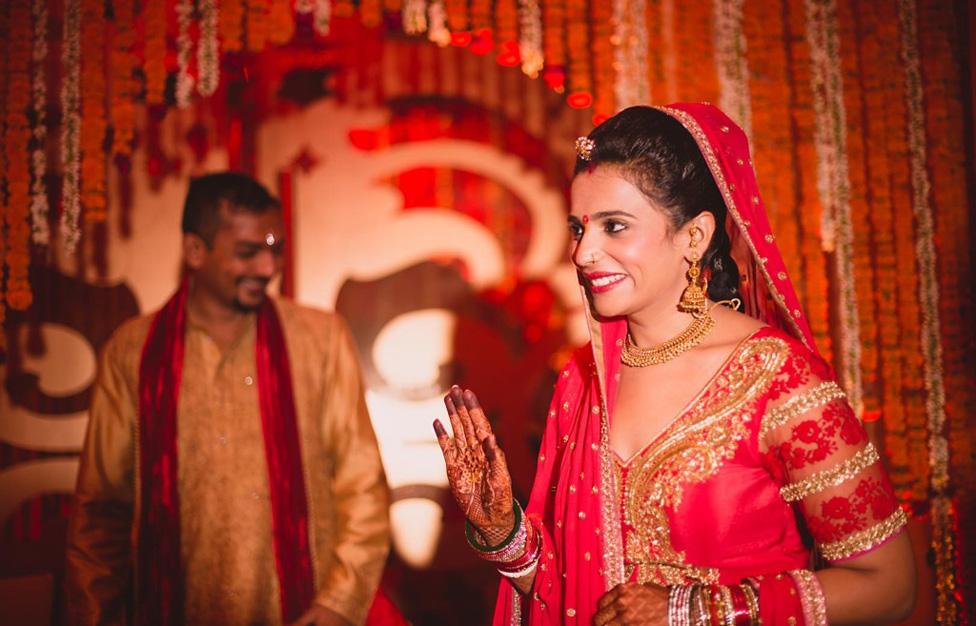
"I get manoeuvred into this room where there's four elders sitting. But I don't know who is who," he says. Kumar had never even seen a photo of Garima's father.
"So it was a little awkward, yeah."
For Varsha and Rahul, who met on the train, dealing with their parents has been even harder. They didn't dare tell their families they were in a relationship with someone from another caste, instead running 1,000 miles away to Delhi.
They decided they should get married. "It was a very simple wedding," says Varsha. With just two guests, it was small by any standard, and minuscule for India.
Then Rahul called his parents to explain why he'd gone to Delhi - that he was in love and had got married.
"Their reaction was pathetic," he says, real anger in his otherwise gentle voice.
"They started, 'I'll kill you, I'll cut you into pieces.'"
They took the threats seriously. So-called honour killings of people who marry someone from another caste are not unheard of in India.
It's tough for Rahul and Varsha, but they're still thrilled at having found each other. They just want their parents - like the other two couples' families - to catch up with what love means to this new generation of independent-minded and empowered young Indians.

The dating game - How are apps changing the way we find love? Although many around the world have found themselves empowered by dating apps, others tell of despair and, in extreme cases, threats of blackmail.
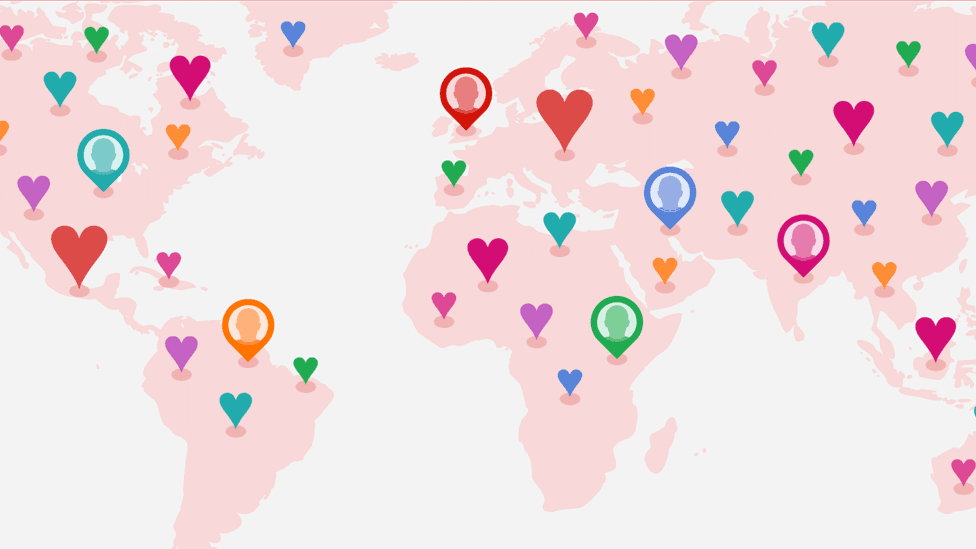

Subscribe to the BBC News Magazine's email newsletter to get articles sent to your inbox.